In a series celebrating BD’s Architect of the Year Awards finalists, we look at the Public Building Architect of the Year shortlist
Earlier this year BD announced all the architects who made it on to the shortlists for our prestigious annual Architect of the Year Awards.
Now we are shining the spotlight on each category in turn and publishing a selection of the images that impressed the judges.
This year’s judges include: Yẹmí Aládérun, head of development, Meridian Water, Enfield Council; Alexandra Andone, associate director, PRP; Amr Assaad, board director, Buckley Gray Yeoman; Lee Bennett, partner, design chair and school lead, Sheppard Robson; Sarah Cary, chief development officer Imperial College, White City Campus; Irene Craik, director, Levitt Bernstein; Alex Ely, founding director, Mae; Martyn Evans, creative director, LandsecU+I; Gavin Hale-Brown, director, Henley Halebrown; Tanvir Hasan, director emeritus, Donald Insall Associates; Lee Higson, board director, Eric Parry Architects; Nigel Hugill, chief executive, Urban & Civic; Kirsten Lees, managing partner, Grimshaw; Oliver Lowrie, director and founder, Ackroyd Lowrie; Anna Mansfield, director, Publica; Michelle McDowell, non-executive director, Civic; Ian McKnight, founding partner, Hall McKnight; John McRae, director and trustee, Orms; David Partridge, chairman, Related Argent; Sarah Robinson, asociate director, The King’s Foundation; Philippa Simpson, director for buildings and renewal, Barbican Centre; Kevin Singh, head, Manchester School of Architecture; Karl Singporewala, founder, Karl Singporewala Design Bureau; Jonathan Smales, founder and CEO, Human Nature; Elizabeth Smith, chairman and regional director, Purcell; Alan Stanton, principal director, Stanton Williams; Amin Taha, chairperson, Groupwork; Magali Thomson, project lead for placemaking, Great Ormond Street Hospital; Tatiana von Preussen, co-founder and director, vPPR; Jo Wright, director, Perkins&Will.
Today’s shortlist is for the category of Public Building Architect of the Year.
AOC
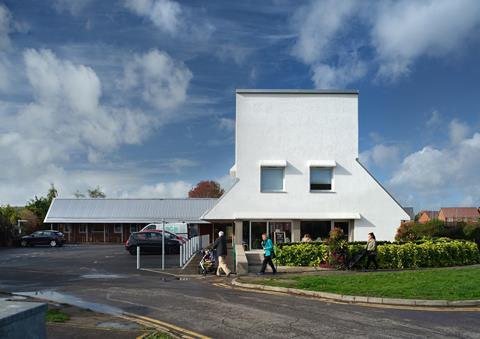
According to AOC, the practice makes public buildings ‘that support a better democratic society’. Where possible, it favours the reuse of existing structures to minimise embodied carbon (Young V&A, London). When building new, it prioritises the integration of existing structures (School Green Centre, Shinfield), and seeks to build the most with the least (Stonehenge Learning Centre and Locomotion New Hall at the National Railway Museum).
Burrell Foley Fischer
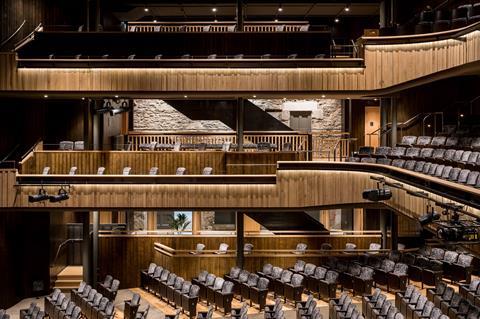
Four projects reimagine existing buildings to provide new or extended use. In Truro, Hall for Cornwall creates a performing arts venue in a city block incorporating two listed Grade II* buildings. The practice has refurbished York’s historic Guildhall and the iconic Mound Stand at Lords cricket ground. And in Great Yarmouth, the proposed restoration of the Winter Gardens will return the decaying Victorian glasshouse to public use.
Feilden Clegg Bradley Studios
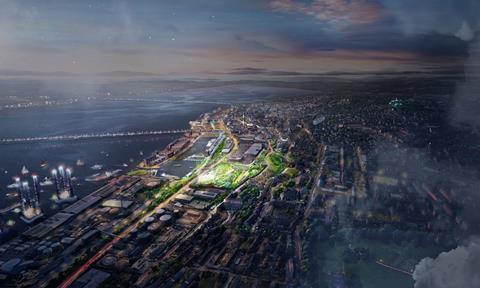
Completed projects include the revitalisation of the Grade I listed Brighton Dome Corn Exchange and Studio Theatre, and the new build Llanishen and Lisvane Reservoir Centre in Cardiff. In Dundee, the practice is working on the transformation of a former gasworks into Eden Earthworks, which will promote the regenerative power of nature. The Bristol Zoo Project will create a modern conservation zoo to breed species at risk of extinction.
Haptic
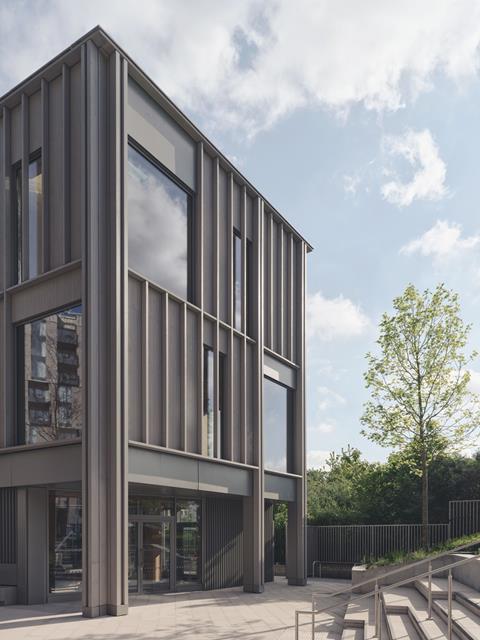
Haptic’s entry features projects in England and Norway. Designed for Argent Related, W3 is a timber-framed well-being hub at London’s King’s Cross, designed to promote community engagement, social interaction and physical activity. In Oslo, Haptic – with PIR2 - is in progress on Tårnkvartalet, a new school and community centre on a decommissioned airport site at Fornebu. The civic building will be created largely from re-used materials and sustainably-sourced timber.
Levitt Bernstein
![]()
Arts buildings can play a key role fostering sustainable communities and becoming meaningful anchors in the cultural infrastructure of cities, believes Levitt Bernstein. The practice has completed a restoration and upgrade of the Grade II listed Bristol Beacon, which includes a 2,200-seat concert hall. Its entry also features the proposed upgrade of the London Symphony Orchestra’s St Luke’s rehearsal and recording centre and the refurbishment of Dorking Halls.
Medical Architecture
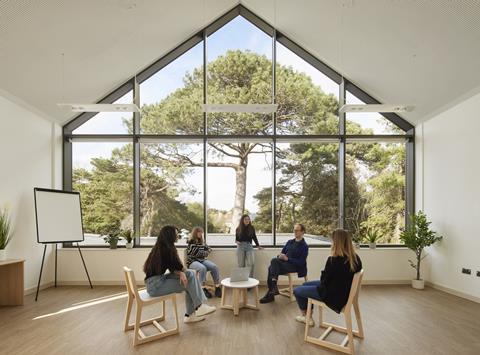
The practice strives to change the historically institutional nature of public sector healthcare design. Kimmeridge Court Eating Disorders Unit, Sycamore mental health facility, and Dorset CAMHS Psychiatric Intensive Care Unit have all been designed to maximise the therapeutic nature of their contexts. The entry is completed by the Cavell Community Health and Wellbeing Hub in Shrewsbury, which promotes a proactive approach to health and wellbeing.
Postscript
The Architect of the Year Awards are on Wednesday, 16th October 2024 at The Brewery, 52 Chiswell Street, London, EC1Y 4SA.
Book your place here.
















No comments yet